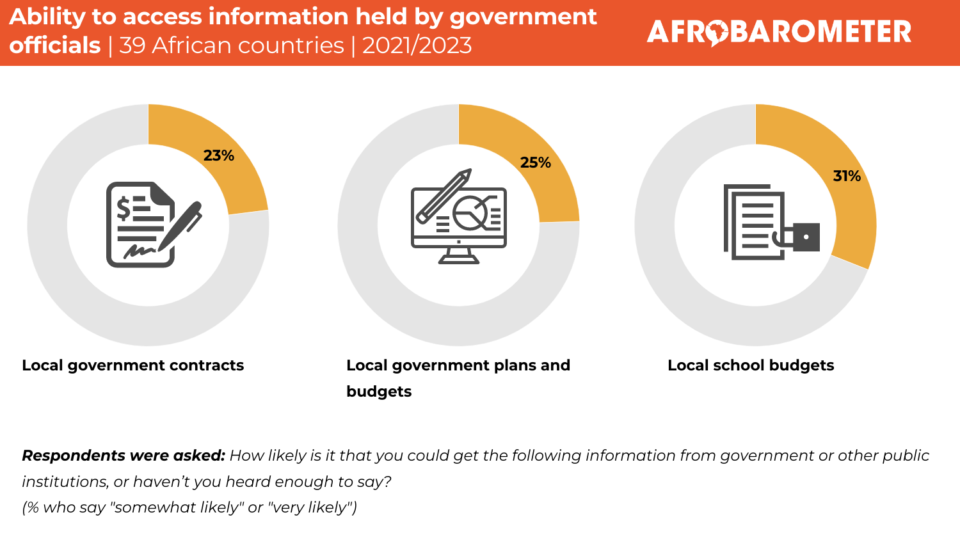New Afrobarometer Report Shows
A majority of Africans reject the idea that information held by public authorities is only for use by government officials and should not be shared with the public, according to the latest Afrobarometer Pan-Africa Profile.
Based on national surveys in 39 African countries, the report shows that most respondents think that ordinary citizens and the news media should have access to information about local government budgets, contracts, and salaries.
But few think they could obtain such information.
The analysis shows that in countries where access to information about local government plans and budgets is seen as limited, citizens are more likely to see their elected officials as corrupt, and less likely to trust them.
Key findings
- On average across 39 countries, a majority (55%) of Africans reject the proposition that information held by public officials and agencies is exclusively for government use and should not have to be shared with the public (Figure 1).
- About eight in 10 respondents say information about local government budgets (81%) and local government bids and contracts (78%) should be accessible to the public. A slimmer majority (55%) favour public access to information about the salaries of local government officials and teachers (Figure 2).
- More than seven in 10 respondents consider it unlikely that they could obtain information about local government bids and contracts (72%) and local government budgets (71%), and 65% hold the same view regarding local school budgets (Figure 3).
- Access to information is strongly associated with perceptions of corruption and trust: Citizens who consider it unlikely that they could access local government and school information are more likely to perceive widespread corruption among government officials at all levels, including the Presidency. And trust in local government officials and members of Parliament is much lower in countries where citizens feel they cannot access information about their local governments and schools (Figure 4).
Afrobarometer surveys
Afrobarometer is a pan-African, non-partisan survey research network that provides reliable data on African experiences and evaluations of democracy, governance, and quality of life.
Nine survey rounds in up to 42 countries have been completed since 1999. Round 9 surveys (2021/2023) cover 39 countries.
Afrobarometer’s national partners conduct face-to-face interviews in the language of the respondent’s choice with samples of 1,200-2,400 adults that yield country-level results with margins of error of +/-3 to +/-2 percentage points at a 95% confidence level.

